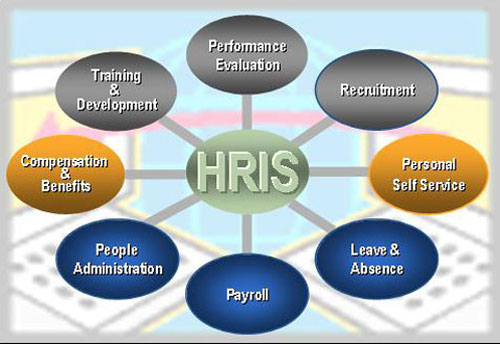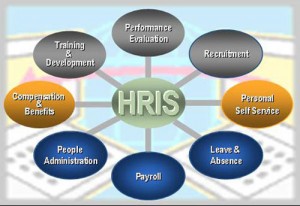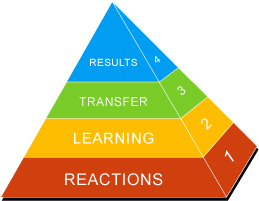IMPACT OF HRIS
Initially conceived to man administrative tasks and expedite the internal office process, the HRIS has now assumed strategic significance. The HRIS today is capable of providing information about the firm and the potential it needs to develop. In internal recruitment the HRIS has expedited the process by providing companies better visibility in the group. For example in Aditya Birla Group(ABG), the corporate Human Resource System which is called Poornata, has made internal recruitment better visible because vacancies in one of the group companies are advertized on the HRIS and are accessible to all the employees in the group . Thus the internal advertizing of the vacancy ensures that people with similar values are selected by the company.
The values of ABG group are common across various group companies. This example shows that the HRIS has eliminated the narrow vista of internal recruitment. In earlier days internal recruitment implied that people from within the company will be considered for the position. This also implied a very parochial vista of choice available for the stakeholder. By making the job visible to a variety of eligible candidates, the HRIS has overcome the limitations that plagued job recruitment scenario.
Intra-group transfer of employees also implies that conflict of interest does not arise within an organization, that the employees are exposed to various working atmospheres within a group of companies. The intra allocation of employees precludes the possibility of cultural shock, and longer periods of head hunting. The recruitment process warrants updated information about the employees of the firm; this is where the HRIS comes to the aide of the firm. At a click of the button, the entire updated information of the employees is present. Thus access to real time information about the firm is another impact of the HRIS.
The study found that two-thirds of the firms use manual HRIS, perhaps due to the lower cost and ease of handling. Barely half of the firms use computer based HRIS, but this is more than a similar research carried out (in 2004). The reason is that with organizations becoming more complex, the situation warrants computerization for better and effective management. The study has empirical evidence that every stage of recruitment namely: data storage, data retrieval, processing benefits from the implementation of HRIS. The empirical data favors the implementation of HRIS in the firms and the evidence that HRIS expedites the process of recruitment besides making it efficient and effective is conclusive.
Firms are rapidly replacing legacy process of payroll management, personnel benefits with an all integrated HRIS. The implementation of HRIS impacts the company more deeply. It challenges the operating principles of work, the core concept of a centralized data store inherent with an HRIS demands integrated work processes for consistently managing that store.
The two attributes – centralized data storage and integrated work processes – will affect the company in ways most managers don’t expect. The employees gain a tremendous insight into the work of the company, how the various processes are integrated.
The Impact of HRIS on the Performance of HR Department
The implementation of HRIS gives the HR department an opportunity to participate strategically and administratively in the functions of the organization.
The efficient database created and managed by HRIS imparts to the organization the capability to measure its health at any given time. Firms today are able to examine costs which are central to the organization’s survival and excellence. Such calculations include health-care costs per employee, pay benefits as a percentage of operating expense, cost per hire, return on training, turnover rates and costs, time required to fill certain jobs, return on human capital invested, and human value added.
Health care costs per employee endow us with the relevant data to design our employee engagement activities with a view to mitigate major health problems prevailing in the organization.
Pay benefits as a percentage of operating expense endows the company to calculate ROI on employee investment. Thus the important data, which forms the input for HR metrics can be readily obtained from HRIS. It must be noted that none of these calculations results in cost reduction in the HR function.
Most notably, it supports the provision of executive reports and summaries for senior management and is crucial for learning organizations that see their human resources as providing a major competitive advantage. HRIS is therefore, a medium that helps HR professionals perform their job roles more effectively.
In today’s competitive environment we cannot undertake to be competitive sans the knowledge of its human resource, their qualification, the average tenure of service that people have in the organization, training needed for skills development, inter and intra migration of workforce.
There are two aspects to an HRIS implementation namely:
1) The benefits that accrue to a firm.
2) The benefits that accrue to a society.
The fundamental question that this article solves is about eliminating a parochial view towards the HR function. “How big a stakeholder the HR department is “, the more mature is the answer to the above question, the more beneficial is the existence of the HR department in the progress of the corporation.
HRIS is not only the need of the business but also the need of a nation. The nation needs to know the status of qualified manpower in various functions and various geographical locations of the country. The Uganda case study demonstrates the practical implications of deploying HRIS in a particular sector. The initiative by the Indian government to have unique identification scheme is also a pan India HRIS initiative for population information.





2 Comments. Leave new
Excellent work!
Good efforts..